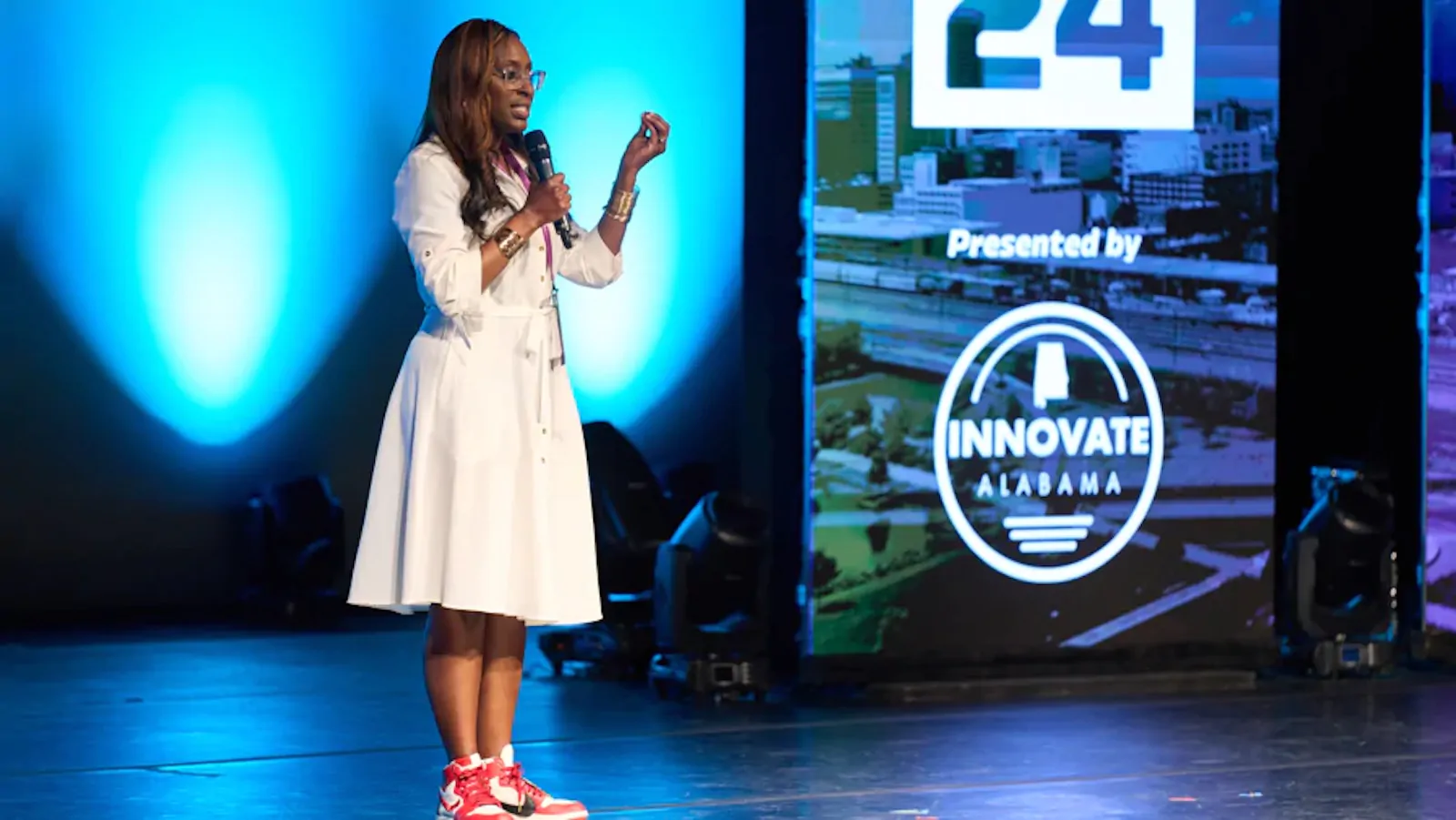|
Getting your Trinity Audio player ready...
|
When Birmingham native Tevin Harrell walked away from a $3 million offer in California to return home and build his company in Alabama, some folks probably thought he’d lost his mind. Turns out, he’d simply found his future.
Harrell’s company, SmartWiz, helps tax professionals and CPAs streamline their work using advanced AI. With funding from Innovate Alabama’s State Small Business Credit Initiative, Harrell was able to hire a PhD-level AI engineer, rapidly expand product development and begin serving more industry segments. But Harrell will be the first to tell you that capital alone isn’t what made the difference. The other half of the success story is Innovation Depot, where SmartWiz found its home, its momentum — and its community.
“Innovate Alabama gave us the fuel, but Innovation Depot gave us the road to drive on,” Harrell said. “Moving back to Alabama was one of the best moves we’ve made.”
He’s not the only one making that move.
Take CModel, for example, led by Teasha Cable, the company relocated from California with the help of the Alabama Futures Fund and Redhawk VC. CModel uses AI to drive decision-making in high-stakes environments — everything from human resources to security protocols. Once settled in Birmingham, Cable built a team, secured additional Innovate Alabama funding, and signed Innovation Depot as one of the company’s first customers.
“We were looking for a place that would invest in us — not just with dollars, but with belief,” Cable said. “We found that in Alabama.”
Then there’s Trunk Tea, a Southern-born beverage startup founded by Emily Wines, blending community storytelling with commercial success. Her company used SSBCI-backed financing to purchase professional-grade equipment and increase production capacity. Now with demand rising, she’s mapping out regional expansion plans — a leap that wouldn’t be possible without the combination of Innovate Alabama’s support and the Depot’s mentorship.
Another standout is Shipshape AgWorks, led by husband-and-wife team, Dale and Angela Speetjens. This isn’t just a hydroponic farm — it’s a lab where food meets science fiction. Their work focuses on controlled environment agriculture and even space farming, developing technology that could one day feed astronauts on Mars. With SSBCI funding, Shipshape hired engineers and expanded its indoor farming lab to study genetic mutations that boost crop yields in closed environments.
And let’s not overlook QRoutes, a high-impact logistics startup that joined the Depot community to scale its intelligent route-planning software for school districts and public transportation systems. Founded by a team of engineers and data scientists, QRoutes uses machine learning to help cities and school systems reduce operational costs and increase efficiency — especially important for underfunded districts in rural and urban areas. With Innovate Alabama funding, QRoutes recently launched a pilot program in Jefferson County that slashed bus route times by nearly 20 percent.
“In most places, what we’re building would be seen as niche,” said QRoutes co-founder Jamila Brooks. “Here, it’s seen as necessary — and that’s a game-changer.”
All of these startups are growing — not in spite of being in Alabama, but because they’re here. The secret sauce? A one-two punch of state-backed funding and a rock-solid innovation ecosystem anchored by Innovation Depot.
Innovate Alabama provides the capital — through SSBCI, venture partnerships and other state tools — while Innovation Depot delivers the structure, mentorship and resources that startups need to go from scrappy to scalable.
These aren’t one-off success stories. They are proof that with intentional public investment and focused local execution, Alabama can be more than a place to start — it can be a place to stay and succeed.
That’s something no Silicon Valley pitch deck can buy.















































